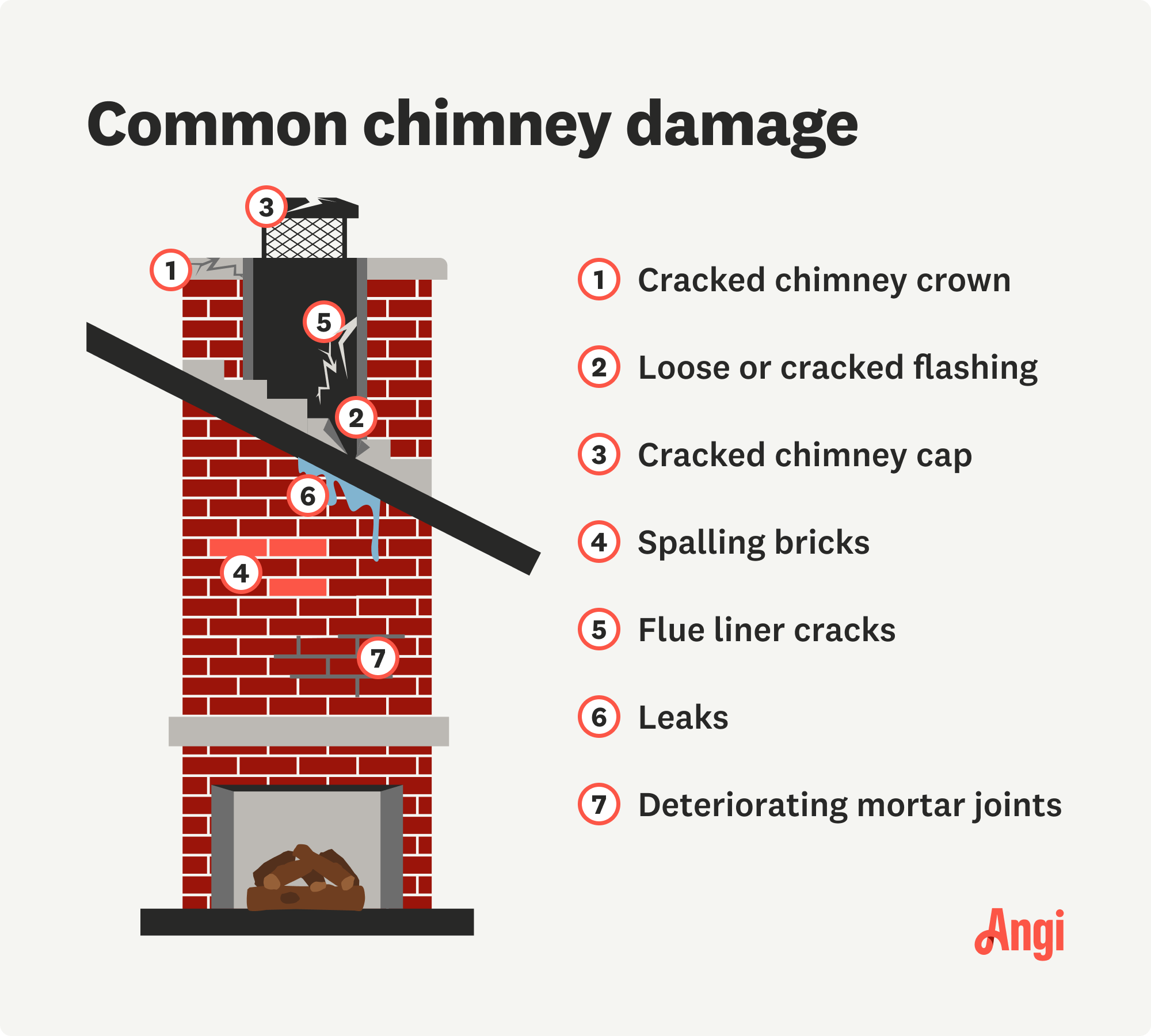
Notice leaks and corrosion around your chimney? You might need new flashing or some careful repairs. Here are some common chimney flashing repair costs.
Spoiler alert: it’s not Santa


Chimney inspections are important for keeping your chimney safe and functioning. Otherwise, problems like creosote buildup, cracked mortar joints, and leaks may go undetected for months or even years, leading to potential structural and safety issues. Scheduling an inspection annually will keep your home cozy and smoke-free. So who does chimney inspections? Here, we’ll go over the basics of chimney inspections so you can make sure you find the right person for the job.
Hiring a chimney professional offers several important benefits:
Ensures your chimney is in safe, working order
Prevents housefires and carbon monoxide poisoning
Removes pests, debris, and dangerous creosote buildup
Identifies issues with brick and mortar, damper system, and flue
Reduces the risk of long-term structural damage and expensive repairs
Prevents personal injury from DIY chimney cleaning
Increases fireplace efficiency and extends the lifespan of the flue liner
Ensures proper tools and techniques are used
Meets homeowner insurance requirements when filing a claim

If you’re looking to save money, you may be wondering if you can do a chimney inspection yourself. While it’s a good idea for any homeowner to perform regular checks of all their home systems, this is one area where it’s best left to the pros. You may feel comfortable checking the overall structure and function of the chimney yourself, but remember that certified professionals are trained to spot potential issues that you may not. Plus, walking around on the roof poses its own safety risks, and it’s just not worth it.
The cost of a chimney inspection depends on the level of inspection you need, so there is a wide price range. Most local chimney professionals charge between $80 and $6,000 for an inspection, but the average chimney inspection cost is closer to $450.
A roofer may be able to do a chimney inspection depending on their certifications and the condition of your roof and chimney, though that’s not always the case. While an experienced roofer would likely notice external damage to your chimney or the surrounding area, that isn’t their primary focus.
A roofer should be able to repair flashing and shingles around a chimney and may spot issues like water damage that you might miss. But, ultimately, it’s safer to hire a specialist, especially if you have an old brick or stone chimney that may require special maintenance.

Chimney inspections identify issues like blockages, creosote buildup, structural damage, and other potential hazards. The National Fire Protection Agency (NFPA) recognizes three levels of chimney inspections. Here’s what to expect from a chimney inspection:
| Level 1 Chimney Inspection | Level 2 Chimney Inspection | Level 3 Chimney Inspection |
|---|---|---|
| Standard inspection | Detailed inspection | Specialized inspection |
| Examines structural soundness | Includes assessment of the flue, attic, and crawl spaces | Performed when there’s damage or an obstruction present |
| Checks for efficient operation | Required when making changes to the system | Involves special tools and removing parts of the chimney or a wall |
| Identifies obstructions | Common in real estate transactions or if the chimney is damaged | Only necessary when a suspected problem can’t be accessed with a Level 1 or 2 inspection |
From average costs to expert advice, get all the answers you need to get your job done.

Notice leaks and corrosion around your chimney? You might need new flashing or some careful repairs. Here are some common chimney flashing repair costs.

The average cost to repair or replace a chimney crown depends on the damage, material, and any other chimney maintenance services bundled into your project.

Replacing your chimney increases home value and prevents hazardous structural damage. Learn how much to budget for chimney replacement costs.

What is repointing a chimney? Repointing a chimney is a necessary repair to keep your structure leak-free. Find out what’s needed and how long it lasts.

A chimney liner provides much-needed protection and increases fireplace efficiency. Learn the steps required for how to install a chimney liner.

Your home’s chimney is made up of several parts. But when it comes to the difference between a chimney damper versus a flue, these parts work together.